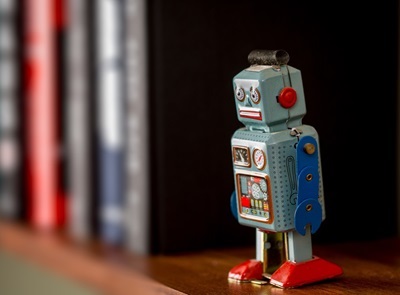The potential impact of advancements in robotics and artificial intelligence (AI) has been high on the agenda during conference season

Will computers take over our jobs, or will they create new ones?
Artificial intelligence has the potential to transform how we live and work, but will this be a positive change, and will it benefit everyone?
As we get better at making robots, many people are worried that robots will take over our jobs, resulting in mass unemployment. Will this disproportionately affect manual workers whose roles may be more easily replaced by machines and who might not have the skills required to do other types of work? Or will highly skilled professions, such the legal sector, healthcare, engineering, banking and accountancy, also be affected as AI becomes more advance and gets broader applicability?
Some argue that the use of robots in the workplace will, in the long-term, lead to more and better jobs, much like previous industrial revolutions have done. Rather than replacing us, machines will help us to do our jobs better. They will take on many of the more mundane tasks, allowing us to be more productive and to focus on the interesting parts of our work. Advancements in robotics and AI may also create entirely new jobs which we are not currently able to foresee, just as the internet has done.
Another concern is that robots may not take our jobs, but they won’t necessarily improve them either. The use of robotics in some workplaces may actually make our jobs more mundane. An example raised was Amazon warehouse workers who are told what to do and where to go by a machine rather than thinking for themselves. It is feasible that we will eventually create robots that will be able to travel around the warehouse and pack items themselves, rendering Amazon pickers redundant. Until then, many workers will continue to do the most menial parts of jobs which robots cannot do quite yet.
Will artificial intelligence create further inequality or improve social mobility?
We’ve already seen that not everyone will necessarily benefit from the use of robotics in the workplace but are there other ways that the increasing use of artificial intelligence will lead to greater societal inequality?
Some people are concerned that as machines learn by monitoring and recording existing datasets, they will reinforce human bias. Big data and machine learning are already used by recruiters to identify ideal candidates for a job, but what if the algorithms they use are based on previously biased decisions made by human recruiters? The concern is that algorithms will likely focus on specific metrics, such as age, location and academic success, meaning candidates with alternative experience may be overlooked. However, algorithms can be designed to be independent of certain variables meaning machines may be able to overcome human biases and spot candidates with potential.
Computers will also make it possible for people to do things they weren’t able to do before; such as speak a foreign language or compose music like Mozart. Think Google translate, which saves you having to spend years learning a language to get by when you travel.
How should data be used?
Machines collect and analyse data in order to perform their functions and self-improve. Much of this data is personal data, so how it’s accessed, handled and used is important. It is already common for shopping websites to suggest alternative objects you may like to buy based on your browsing history but would you be ok with someone following you around Boots pointing out additional items you should put in your basket? Do we need to develop a consistent set of principles that govern how data about us is handled in the physical and virtual worlds?
What should government be doing?
Government will have an important role to play in ensuring that robotics and AI improve our lives in a way that we are all comfortable with. Big data and machine learning are already part of our everyday lives but there are important decisions about how data should be managed and safeguarded, for example, who owns our data and who should have access to it and when. Government has a key role in ensuring those decisions are taken in a well-informed way.
As workers get replaced by machines and new jobs emerge as a result of advancements in robotics and AI, government needs to be prepared for this transition and play a role in preparing the pipeline of skills needed in the future. This will include helping people to retrain and transition between jobs more easily.
As part of the Royal Society’s policy work on machine learning, the form of AI that has enabled recent advances in technologies like voice or image recognition, we are exploring the challenges and opportunities associated with these technologies within the next 5-10 years. Last month we also launched our data governance project jointly with the British Academy. This project will review how data is currently used and the governance systems already in place. It will make recommendations for future governance arrangements so that applications using data, such as those discussed at this event, can be developed with confidence. We would like to hear your views on how data should be used.
